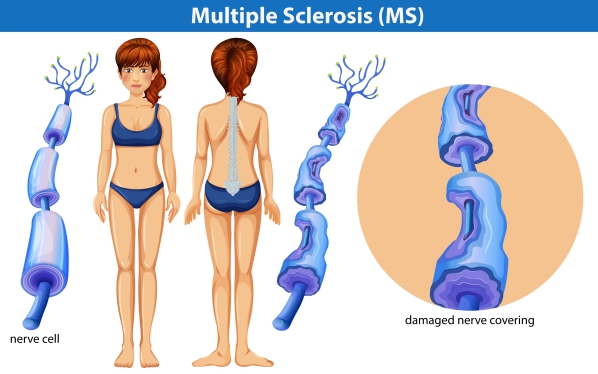What is toxoplasmosis?
Toxoplasmosis is an infection that is caused by a pathogen known as Toxoplasma gondii. The infection can affect a variety of organs in the body. Many people may have the infection without knowing it as it can present without any symptoms. However, some individuals are at increased risk of having severe or life-threatening diseases from toxoplasmosis. The infection can be acquired following the ingestion of undercooked contaminated meat or being exposed to infected cat faeces. It is also known to be transmitted from the mother to the child during pregnancy. If an infant is born to a mother who is infected with toxoplasmosis, this may result in serious complications. In the majority of cases, a healthy adult will develop no symptoms at all and may not require any treatment.
The definitive host for toxoplasmosis are cats. It is the main host in which the pathogen reproduces. Cats become infected when they consume contaminated raw meat, wild birds or mice. The pathogen then multiplies in the cat’s gastrointestinal tract. They are then expelled from the animal’s body through its faeces. Humans can in turn become infected following the handling of contaminated soil or cat litter. Cases has been known to occur following the ingestion of contaminated water or food sources such as unwashed garden vegetables.
Around 10-20% of pregnant women with toxoplasmosis will exhibit symptoms. The pathogen can be transmitted from the mother to the baby through the placenta. Severe disease can also occur in people who have a weakened immune system. In the United States, around 225,000 cases of toxoplasmosis are reported every year leading to about 5000 hospitalizations and 750 deaths.

What are the causes and risk factors for toxoplasmosis?
Toxoplasmosis infection is caused by toxoplasma gondii. It is usually present in most animals, with ultimate host cats. The disease is not transmitted from humans to humans. You may get the disease if you come in contact with infected cat faeces. This can occur during gardening, cleaning the cat’s litter box or getting in contact with anything that may have been contaminated with cat’s faeces. Cats which usually hunt or feed on raw meat are those which are more likely to have toxoplasmosis.
If you ingest contaminated water or undercooked meat such as lamb, pork or venison, you can get toxoplasmosis. Similarly, if you use contaminated knives, cutting boards or utensils that may have come into contact with contaminated food sources, the pathogen may be transmitted. Very rarely, unpasteurized dairy products can also contain the pathogen.
You are at increased risk of having severe disease if you:
- Have acquired immunodeficiency syndrome (AIDS)
- Are currently undergoing chemotherapy
- Take medications such as steroids or immunosuppressants
What are the signs and symptoms of toxoplasmosis?
Only about 10-20% of infected people have symptoms. In people with weakened immune system, the disease tends to be severe. In some cases, it can even be life threatening. The symptoms vary from person to person based on age and general health.

Healthy adult
Most healthy adults do not present with any symptoms. However, the following signs and symptoms may be present if a healthy adult is infected:
- Enlarged lymph nodes
- Fever
- Malaise
- Night sweats
- Muscle pain
- Sore throat
- Abdominal pain
Individuals with weakened immune system but who do not have AIDS
These people may present with the following symptoms:
- Seizure
- Neurological problems
- Confusion
- Headache
- Paralysis
- Visual disturbances
- Flu-like symptoms
People who have AIDS
In people with AIDS, toxoplasmosis most commonly affects the brain. They may present with the following symptoms:
- Confusion
- Seizures
- Weakness
- Abnormal sensations
- Movement disorders
- Neuropsychiatric problems
- Lethargy
- Coma
- Dementia
- Psychosis with hallucinations
- Visual disturbances
Children born with toxoplasmosis
The following symptoms may be present in children born with toxoplasmosis:
- Ocular disorders
- Calcifications in the brain
- Anemia
- Jaundice
- Small head size
- Mental retardation
- Seizures
- Deafness
- Neurological problems

How is the diagnosis of toxoplasmosis made?
To make the diagnosis of toxoplasmosis, your doctor will start by asking you a series of questions to know more about your symptoms. He/she will then perform a thorough physical examination to look for signs of toxoplasmosis.
If you are or are not pregnant and your doctor suspects that you may have toxoplasmosis, he/she will order blood tests to check for the presence of toxoplasmosis antibodies. Antibodies are proteins that are produced by your body against specific pathogens that has entered the body.
Imaging tests may be performed depending on the case. These include head computed tomography (CT) scan to look for the presence of lesions in the brain, positron emission tomography (PET) scanning and magnetic resonance imaging (MRI). Ultrasound scans may be performed to look for any brain abnormalities in foetuses or newborn babies.
How is toxoplasmosis managed?
In most cases, treatment is not required as the majority of people are asymptomatic. If symptoms are present, treatment needs to be started. Treatment options may include the following:
- Pyrimethamine: This medication is known to be used in malaria. Due to its possible side effects, your doctor may prescribe folic acid supplements alongside.
- Sulfadiazine: This medication is an antibiotic that is often prescribed together with Pyrimethamine to treat toxoplasmosis.

The choice of treatment will be based on your doctor’s judgement of your medical condition.
How can toxoplasmosis be prevented?
The following measures can help to prevent infection with toxoplasmosis:
- Avoid eating raw or undercooked meat, unpasteurized milk, and uncooked eggs, oysters, clams and mussels.
- After manipulating raw meat, always wash your hands thoroughly.
- Wear protective gloves whenever you are gardening or working with soil.
- Wash fruits and vegetables carefully before consuming.
- Avoid contact with cat’s faeces.
What is the prognosis of toxoplasmosis?
If you are a non-pregnant healthy adult, the prognosis of toxoplasmosis infection is excellent. If you have flu like symptoms, they tend to resolve within weeks of infection. If you have a weak immune system, the disease tend to relapse if treatment is halted. Babies born with toxoplasmosis are at increased risk of having mental retardation, seizures, deafness and blindness.

Source:
Hokelek, M., 2019. Toxoplasmosis.
Lindsay DS, Dubey JP. Toxoplasma gondii: the changing paradigm of congenital toxoplasmosis. Parasitology. 2011 Sep 9. 1-3.
Montoya JG, Liesenfeld O. Toxoplasmosis. Lancet. 2004 Jun 12. 363(9425):1965-76.
Jones JL, Kruszon-Moran D, Sanders-Lewis K, Wilson M. Toxoplasma gondii infection in the United States, 1999 2004, decline from the prior decade. Am J Trop Med Hyg. 2007 Sep. 77(3):405-10.
Remington JS. Toxoplasmosis in the adult. Bull N Y Acad Med. 1974 Feb. 50(2):211-27.




